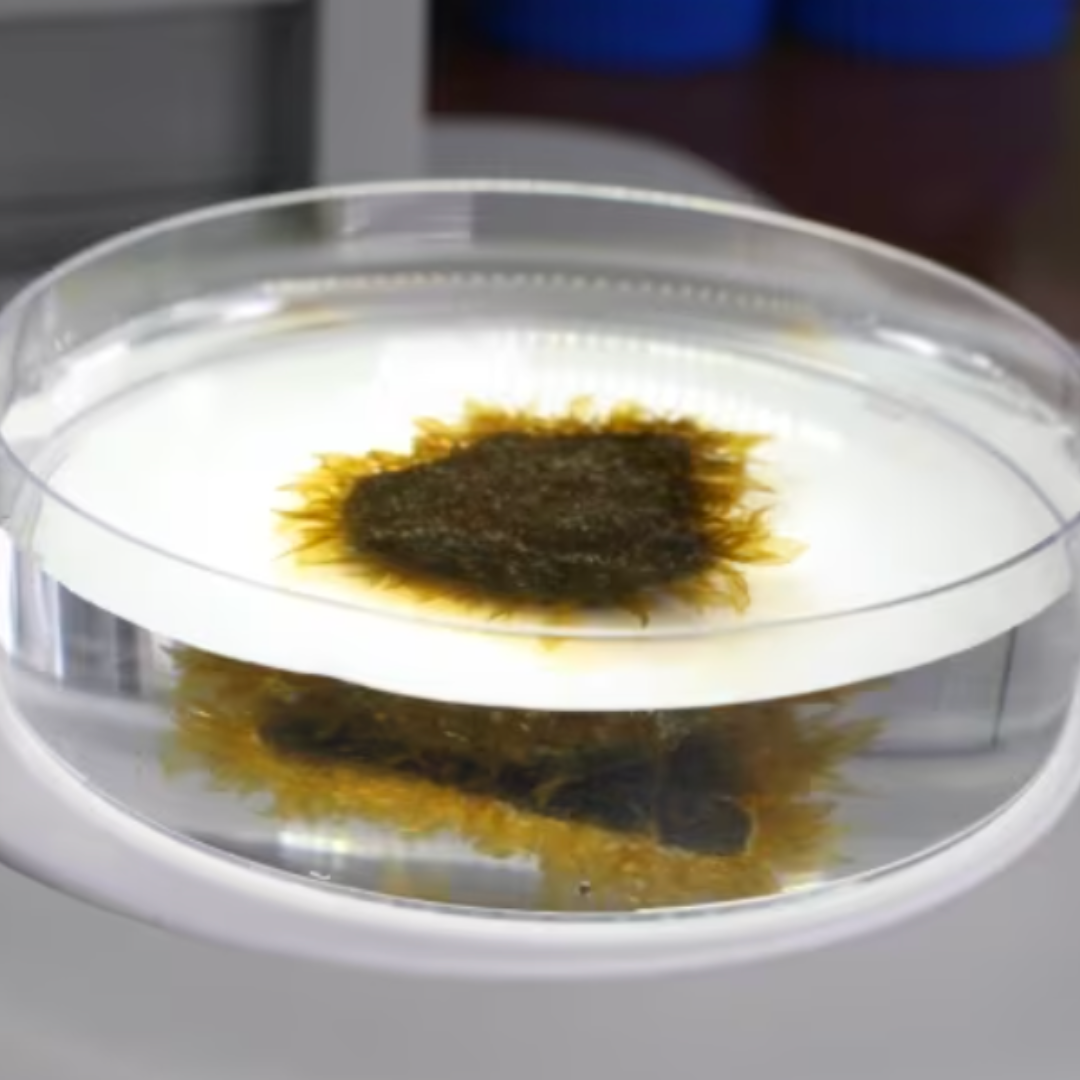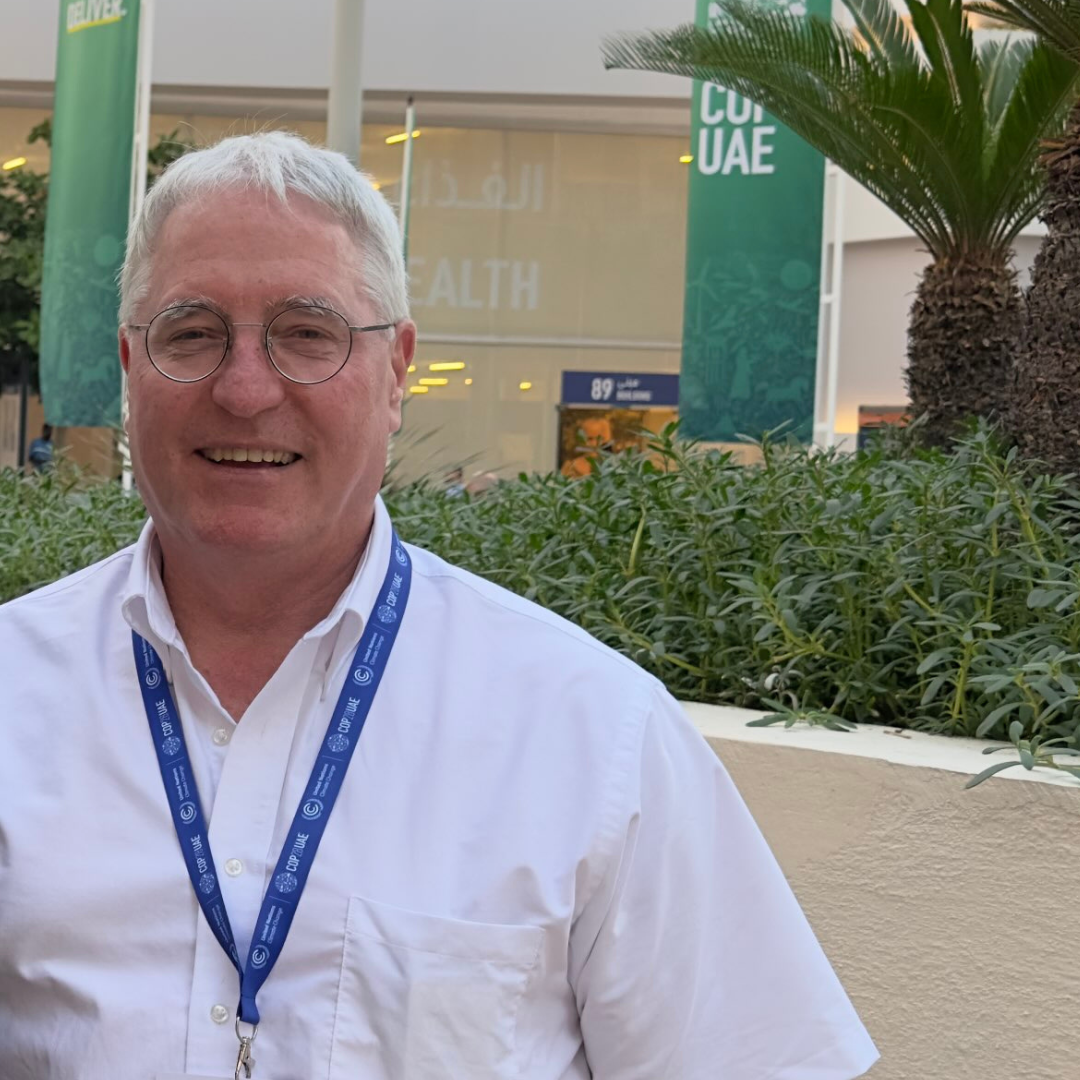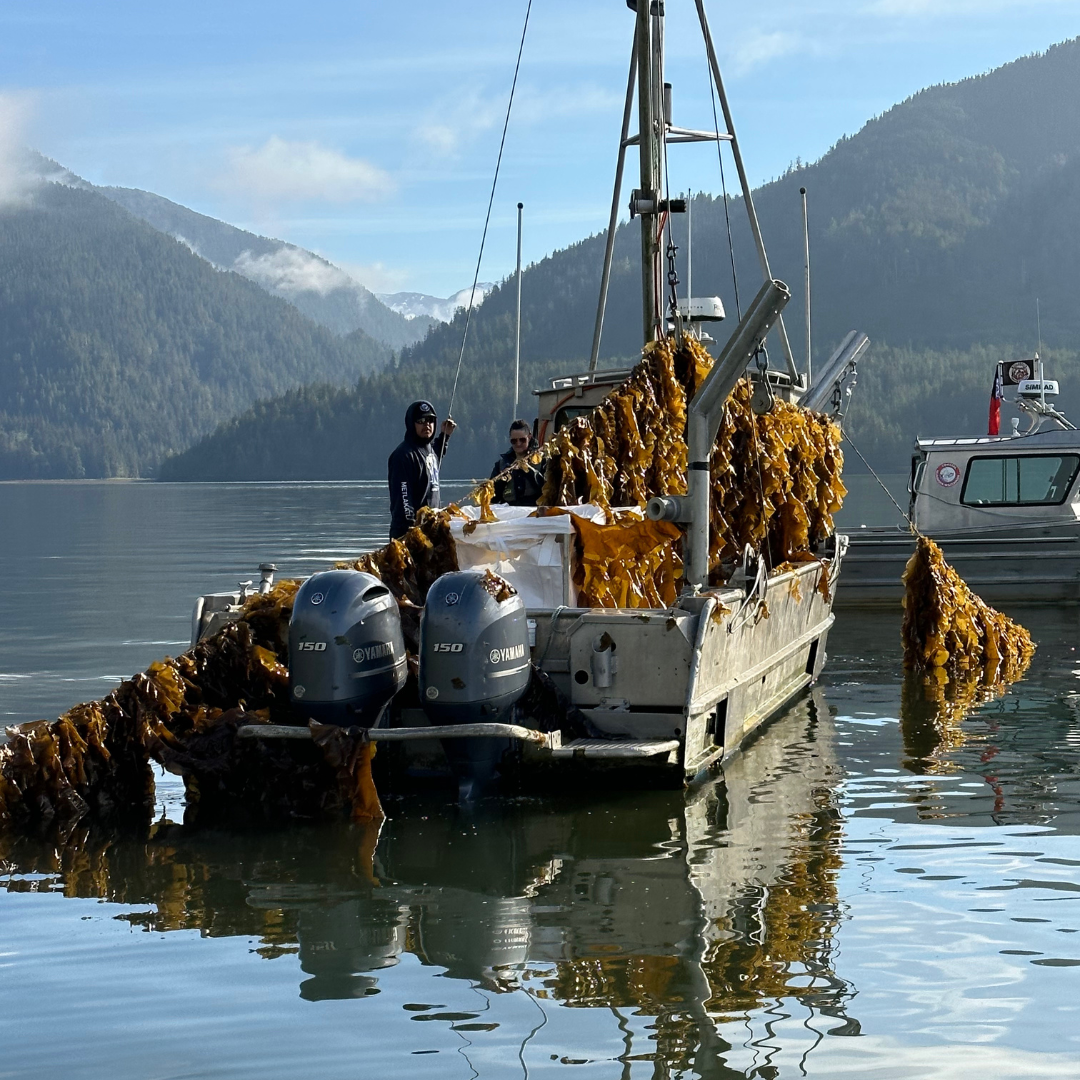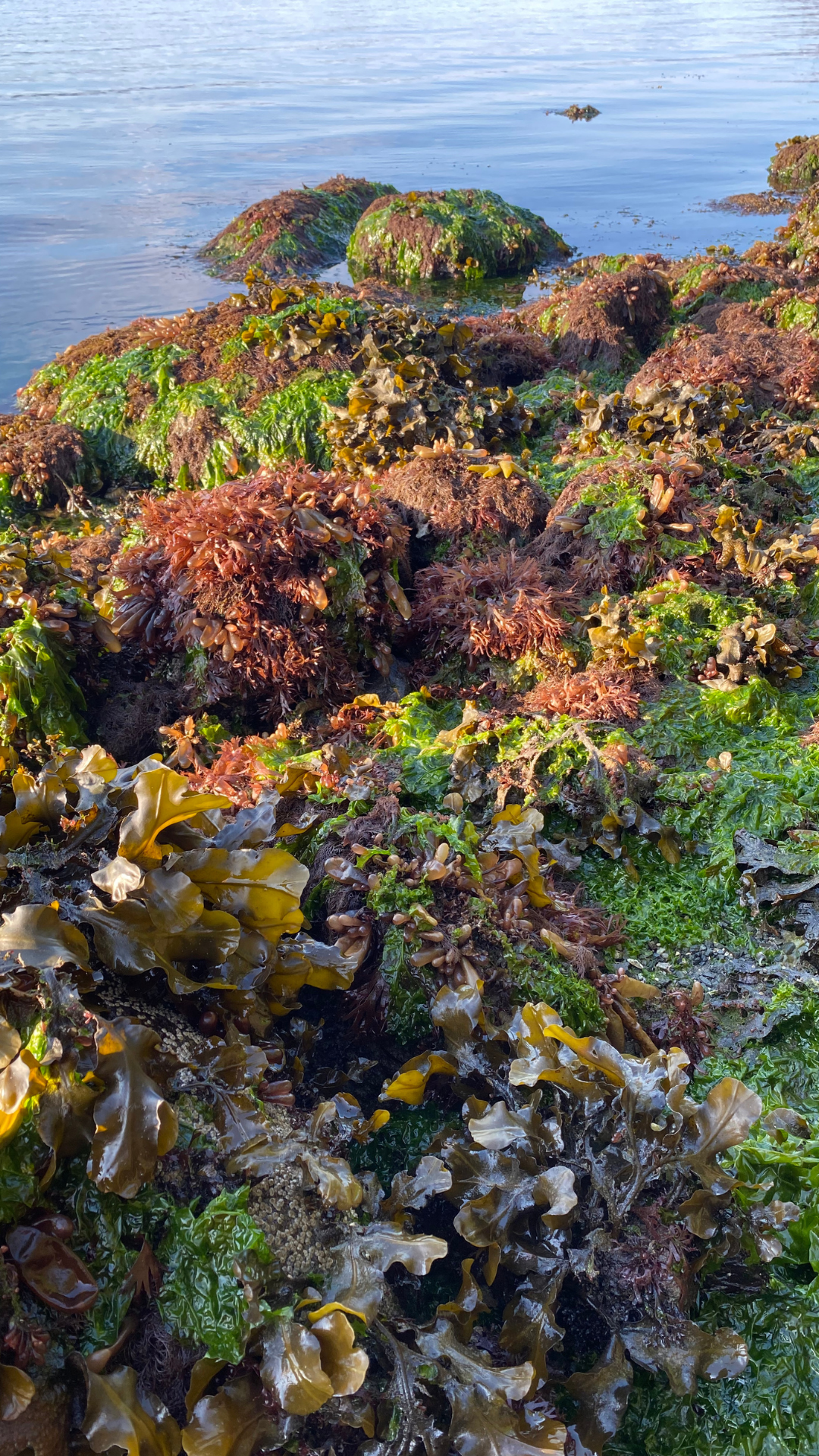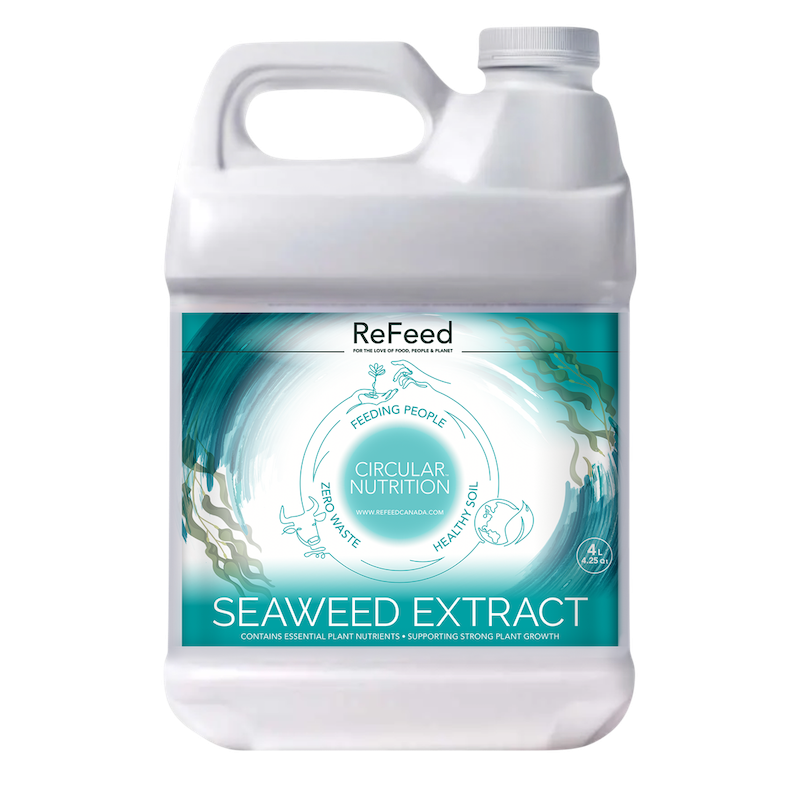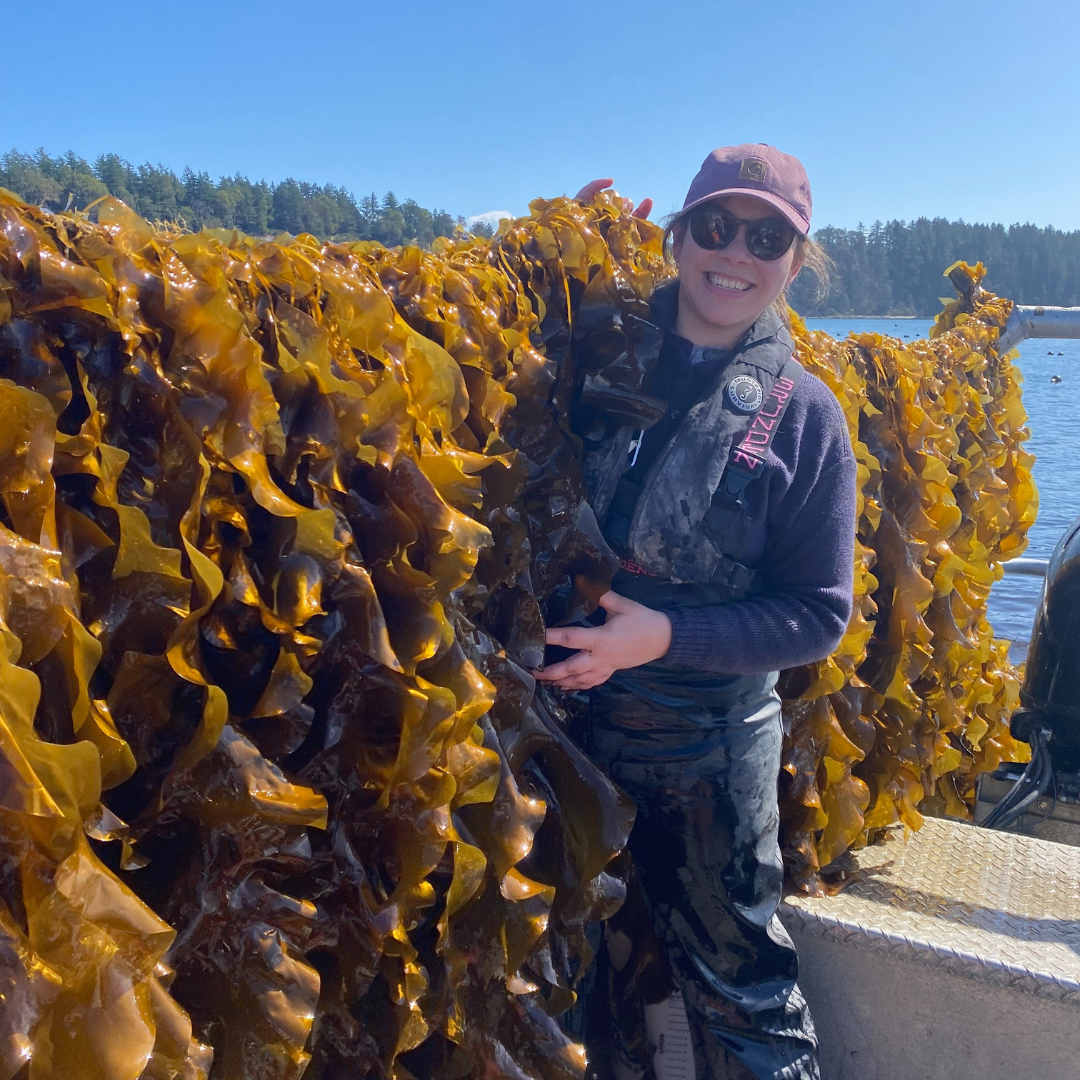At Cascadia Seaweed, we cultivate local species of seaweed and manufacture products for crop and cattle farmers.
New processing facility on Vancouver Island
could help expand local food production

An old fish processing plant in Port Alberni, B.C. has been given new life as a place where food companies can make their products with the goal of scaling up local business and providing more food sector jobs in the community.
The Sea to Forest food hub is a centralized shared-use food processing facility that currently provides five tenants with affordable access to production facilities and specialized equipment so they can scale up production and expand their businesses.
The facility is funded by the city, the provincial government, the Island Coastal Economic Trust and the Port Alberni Port Authority and is located on the industrial waterfront in the Vancouver Island community. Part of the B.C. Food Hub Network, similar hubs exist in the Lower Mainland and another is planned for Quesnel, B.C., in the fall.
"Port Alberni's food and beverage processing sector is full of opportunity for growth, and this hub will help fishers, seafood producers, and farmers in the area build their businesses and the community," said Agriculture Minister Lana Popham in a statement.
Sea to Forest food hub tenants include Flurer Smokery, Cascadia Seaweed, Nova Harvest Oysters and Canadian Seafood Processing. Ben Patarin, co-owner of a mushroom harvesting and processing business, is the only tenant living up to the forest portion of the hub's name.
Patarin, who co-owns Forest for Dinner with his wife Celia Auclair, said the hub is an ideal opportunity to process their products, such as jams and jellies, without having to finance the necessary equipment themselves. Instead, said Patrin, they can pay a fraction of the price to use the equipment at the new hub.
"It is way less money to put up front," said Patarin Monday on CBC's All Points West, adding he also hopes to collaborate with other tenants on marketing and other plans to try to grow the local food economy.
Patarin said the plan is for the hub to eventually have retail space, as well as a shared commercial kitchen.
"There is a lot of food in the valley but most of it, so far, was being exported or processed somewhere else, so it is going to be a good hub to process local food," said Patarin.
Scott Fraser, the MLA for Mid Island-Pacific Rim, is also welcoming the opportunity to process more food locally.
"Our fishers, harvesters, farmers and processors will be able to keep the processing of their products here in the port, which will help businesses increase product value and revenues while employing more people in the community," said Fraser in a statement.
The B.C. Food Hub Network is a provincial government initiative under the Feed B.C. program, which is an effort to increase the use of B.C.-grown and B.C.-processed foods in hospitals and other health care facilities, post-secondary institutions and other government-supported facilities.
The Sea to Forest food hub is a centralized shared-use food processing facility that currently provides five tenants with affordable access to production facilities and specialized equipment so they can scale up production and expand their businesses.
The facility is funded by the city, the provincial government, the Island Coastal Economic Trust and the Port Alberni Port Authority and is located on the industrial waterfront in the Vancouver Island community. Part of the B.C. Food Hub Network, similar hubs exist in the Lower Mainland and another is planned for Quesnel, B.C., in the fall.
"Port Alberni's food and beverage processing sector is full of opportunity for growth, and this hub will help fishers, seafood producers, and farmers in the area build their businesses and the community," said Agriculture Minister Lana Popham in a statement.
Sea to Forest food hub tenants include Flurer Smokery, Cascadia Seaweed, Nova Harvest Oysters and Canadian Seafood Processing. Ben Patarin, co-owner of a mushroom harvesting and processing business, is the only tenant living up to the forest portion of the hub's name.
Patarin, who co-owns Forest for Dinner with his wife Celia Auclair, said the hub is an ideal opportunity to process their products, such as jams and jellies, without having to finance the necessary equipment themselves. Instead, said Patrin, they can pay a fraction of the price to use the equipment at the new hub.
"It is way less money to put up front," said Patarin Monday on CBC's All Points West, adding he also hopes to collaborate with other tenants on marketing and other plans to try to grow the local food economy.
Patarin said the plan is for the hub to eventually have retail space, as well as a shared commercial kitchen.
The kitchen will be available for small businesses and non-profits to process food for commercial purposes and is expected to be ready this fall.
"There is a lot of food in the valley but most of it, so far, was being exported or processed somewhere else, so it is going to be a good hub to process local food," said Patarin.
Scott Fraser, the MLA for Mid Island-Pacific Rim, is also welcoming the opportunity to process more food locally.
"Our fishers, harvesters, farmers and processors will be able to keep the processing of their products here in the port, which will help businesses increase product value and revenues while employing more people in the community," said Fraser in a statement.
The B.C. Food Hub Network is a provincial government initiative under the Feed B.C. program, which is an effort to increase the use of B.C.-grown and B.C.-processed foods in hospitals and other health care facilities, post-secondary institutions and other government-supported facilities.
Read the article from CBCs All Points West here.
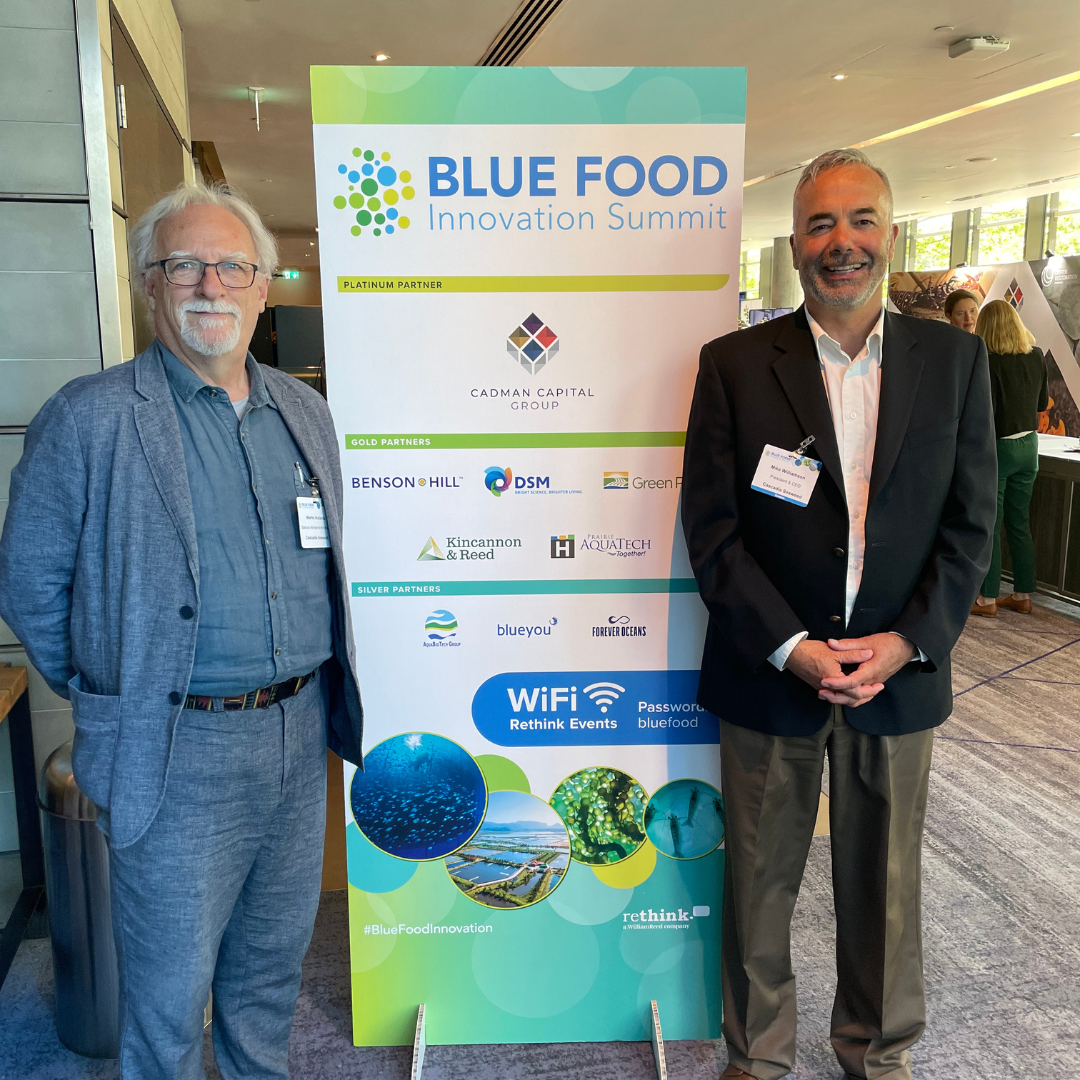
By Erin Bremner-Mitchell
•
16 Jun, 2023
Seaweed’s greatest potential to be both commercially successful and environmentally positive is using it as a biostimulant in order to increase terrestrial crops yields, while reducing the traditional agriculture sector’s reliance on chemical fertlisers, rather than as a means of sequestering blue carbon.
C - 9774 Third Street Sidney British Columbia V8L 3A4
Email: info@cascadiaseaweed.com
Phone: 1-778-351-4484

9774 - C Third Street Sidney British Columbia V8L 3A4
Email: info@cascadiaseaweed.com
Phone: 1-778-351-4484

